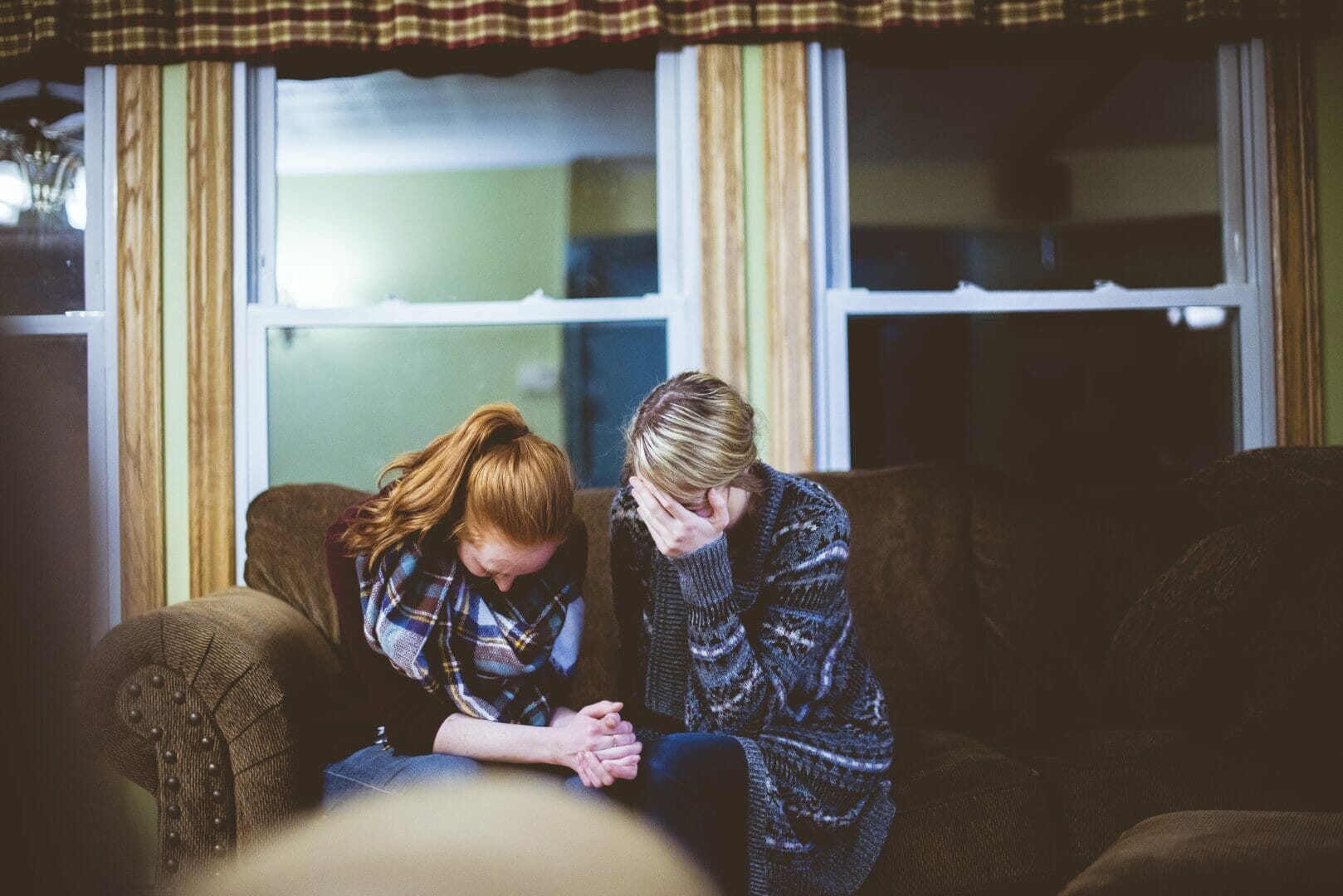Ways To Manage Grief And Move Forward
Introduction
Losing a loved one is one of the most difficult experiences a person can go through. The grief that follows can be all-consuming and make it hard to focus on anything else. While there is no “right” way to grieve, there are some things you can do to help manage your grief and start to move forward.
Allow yourself to grieve. It’s normal to feel a range of emotions after someone dies, including sadness, anger, confusion, and guilt. Don’t try to bottle up your feelings or tell yourself you “should” be over it by now. Grief can be unpredictable, and it may come in waves. Allow yourself to feel whatever you’re feeling and know that it’s okay to take your time.
Talk about your feelings. It can be helpful to talk about your loved one and your feelings with friends or family members who are also grieving. If you don’t feel like talking to people who are close to you, there are other options, too. You could see a therapist or join a support group for people who are grieving.
Find a support group. If you’re struggling to cope with your grief, consider finding a support group. These groups provide a space for people who are going through similar experiences to share their thoughts and feelings. Seeing that others are struggling with similar emotions can make you feel less alone and give you some ideas for coping with your own grief.
While grief is a universal experience, everyone copes with it in their own way. By giving yourself time and space to grieve, talking about your feelings, and seeking out support, you can start to manage your grief and begin to move forward.

What is grief?
Grief is the process of adjusting to a significant loss. It is a natural response to death, divorce, job loss, and other major life changes. Grief can be extremely painful, but it is also a normal and necessary part of healing. There is no one right way to grieve, and there is no timeline for grief. Some people may seem to bounce back quickly, while others may struggle for months or even years. Grief is not a sign of weakness; it is a sign that you have been through something difficult. There are many ways to cope with grief. Some people find comfort in religious or spiritual practices, while others find solace in nature or art. Some people prefer to talk about their feelings, while others prefer to keep them private. There is no wrong way to grieve, and what works for one person may not work for another. If you are struggling with grief, there are many resources available to help you cope. There are support groups, counseling services, and hotlines available to assist you in your journey. You are not alone.

The 5 stages of grief
The 5 stages of grief were first popularized by Elisabeth Kübler-Ross in her 1969 book On Death and Dying. The stages are often used to help people understand and cope with their own grief, as well as the grief of others.
The 5 stages are denial, anger, bargaining, depression, and acceptance.
Denial is the first stage of grief and is a defense mechanism that allows the individual to absorb the news. Denial is temporary and eventually gives way to reality.
Anger is the second stage of grief and is often directed at those who are perceived to be responsible for the death, such as doctors or God. It is also common to feel anger toward oneself. This stage is temporary and eventually gives way to bargaining.
Bargaining is the third stage of grief and is a defense mechanism that allows the individual to delay accepting the reality of the death. Common bargaining statements include, If only I had _____, then _____ would not have happened. This stage is temporary and eventually gives way to depression.
Depression is the fourth stage of grief and is characterized by feelings of sadness, hopelessness, and despair. This stage is temporary and eventually gives way to acceptance.
Acceptance is the fifth and final stage of grief. In this stage, individuals come to terms with death and begin to make plans for moving forward with their lives.
Symptoms of grief
- Intense emotions such as sadness, anger, guilt, anxiety, and loneliness
- Disrupted sleep patterns, including difficulty falling asleep or staying asleep
- Changes in appetite, resulting in weight loss or gain
- Loss of interest in activities that used to bring joy
- Withdrawal from friends and family
- Feeling numb or disconnected from the world
- Irritability or feeling easily angered
- Physical symptoms such as headaches, body aches, and fatigue
Symptoms of grief can vary from person to person and may even come and go. It is important to remember that there is no “right” or “wrong” way to grieve. Grief is a process that is unique to each individual.
Ways to Manage Grief and Move Forward
Grief is a natural reaction to loss. It’s the emotional suffering you feel when something or someone you love is taken away. The process of grieving is different for everyone. Some people feel intense sadness, while others may feel numbness or anger. There is no right way to grieve, and there is no timeline for healing. There are, however, some things you can do to help yourself through the grieving process. Here are four ways to manage grief and move forward:
Allow Yourself to Grieve: It’s important to allow yourself to grieve. Don’t try to bottle up your emotions or suppress them. Doing so will only make the grieving process harder. Let yourself feel the pain, and don’t be afraid to express your emotions. Cry if you need to, or find another outlet for your feelings such as writing or painting.
Talk About Your Feelings: Talking about your feelings can be difficult, but it can also be very healing. Find someone you trust – a friend, family member, therapist, or clergy member – and share your thoughts and feelings with them. Talking openly and honestly about your grief will help you start to work through it.
Find a Support Group: There are many groups available to help people who are grieving. These groups provide a safe space for you to share your feelings and connect with others who are going through similar experiences. Talking with others who understand what you’re going through can be very helpful and supportive.
These are just a few ways to manage grief and begin the healing process. Grief is a difficult journey, but by taking care of yourself and reaching out for support, you can start to move forward.
Allow Yourself to Grieve
It is natural to feel grief when you lose someone or something important to you. Grief is a normal and healthy reaction to loss. However, grief can be difficult to deal with and it can feel overwhelming at times.
There are no set rules for grieving and there is no “right” or “wrong” way to do it. Some people may find that they need to express their grief openly, while others may prefer to keep it private. There is no “correct” way to grieve and each person will experience it in their own way.
It is important to allow yourself to grieve in whatever way feels right for you. Suppressing grief can lead to problems down the road and can make it more difficult to cope with the loss. If you are finding it difficult to cope with your grief, there are some things you can do to help make it more manageable.
- Talk about your feelings: It can be helpful to talk about your feelings of loss with someone who will understand and support you. This could be a friend, family member, therapist, or clergy member. Talking about your feelings can help you to express them and may help you to feel better.
- Write about your loss: Writing about your loss can be therapeutic. You can write about your memories of the person or thing you lost, how you are feeling, and what the future looks like without them. Writing can help you to make sense of your thoughts and feelings and can be a way to express yourself if you find it difficult to talk about your grief.
- Participate in rituals: There are many rituals associated with death and loss, such as funerals and wakes. Participating in these rituals can be helpful as they provide a sense of closure and a way to honor the person or thing that has been lost.
Take care of yourself: It is important to take care of yourself both physically and emotionally during this difficult time. Make sure to eat healthy foods, get plenty of rest, and exercise regularly. It may also be helpful to avoid alcohol and drugs as they can worsen the symptoms of grief. Seek professional help if your grief is impacting your ability to function in day-to-day life or if you have thoughts of harming yourself.

Talk About Your Feelings
It is said that grief comes in waves. You may be fine one minute and the next minute you are hit with a wave of sadness and longing. This is perfectly normal. The important thing is to allow yourself to feel the grief and not try to bottle it up. It is also important to talk about your feelings. Talking about your loss with others who have also experienced a loss can be very helpful.
There are many ways to cope with grief and everyone will find what works best for them. Some people find comfort in religion or spirituality. Others find comfort in writing or painting. Some people find comfort in nature or spending time with animals. Whatever works for you, do not be afraid to seek out help when you need it.

Find a Support Group
If you’re struggling to cope with your grief, one of the best things you can do is join a support group. There are many different types of support groups available, so it’s important to find one that’s right for you. Here are some tips to help you find a support group that’s right for you:
1. Decide what type of support group you’re looking for. There are groups for widows, parents who have lost a child, people who have lost a loved one to suicide, and many other types of grief support groups. There’s no right or wrong type of group, so it’s important to choose one that feels right for you.
2. Ask your friends and family if they know of any good groups. It can be helpful to get recommendations from people who have already been through the process of finding a support group.
3. Do an online search for grief support groups in your area. This is a great way to get a feel for what’s available and to find out more about each group.
4. Contact the group leader or facilitator before attending a meeting. It’s important to make sure that the group is a good fit for you before you commit to attending.
5. Attend a meeting and see how you feel. It’s perfectly normal to feel nervous about attending a support group, but it’s important to give it a try. If it doesn’t feel like the right fit, you can always try another group. Support groups can be an incredibly helpful resource for people who are struggling with grief. If you’re having trouble coping, don’t hesitate to reach out and find a group that’s right for you.

Get Professional Help
It is normal to feel overwhelmed after a loss. Grief can be all-consuming and make it difficult to cope with everyday life. If you are struggling to cope, it is important to seek professional help. There are many resources available to help you through this difficult time. Your local mental health association or community health center can put you in touch with grief counselors and support groups in your area. If you are struggling with complex grief, you may need more specialized help. Your doctor can refer you to a grief therapist or counselor who can help you manage your grief and begin to heal.

Focus on the Positive
When you lose a loved one, it is natural to feel grief and sorrow. However, it is important to remember that life goes on and that there are still many beautiful things to experience. Here are some tips for managing your grief and moving forward:
1. Acknowledge your loss and allow yourself to grieve. It is okay to cry and to feel pain. Allow yourself the time and space to process your feelings.
2. Reach out to family and friends for support. Talking about your loved one and sharing memories with others can be helpful.
3. Stay active and involved in activities that you enjoy. This can help take your mind off of your sadness and help you feel better overall.
4. Focus on the positive aspects of your life and be grateful for what you have. There is still much to enjoy, even when times are tough.
5. Seek professional help if you are struggling to cope with your loss. A counselor can provide you with additional support and guidance during this difficult time.

Find a New Hobby or Activity
It is often said that time heals all wounds. While this may be true to some extent, the grieving process is often a long and difficult one. In order to help you move forward, it is important to find healthy coping mechanisms and ways to manage your grief.
One way to do this is to find a new hobby or activity that you can get passionate about. Doing something that you enjoy can help take your mind off of your sadness and give you a sense of purpose. It can also be a great way to connect with others who share your interests.
There are endless possibilities when it comes to finding a new hobby or activity. Maybe you’ve always wanted to learn how to play an instrument or get involved in a sport. Or maybe you’d like to volunteer for a cause that is important to you. Whatever it is, taking that first step can be empowering and help you on your journey to healing.

Make Time for Yourself
It is important to make time for yourself when you are grieving. This can be difficult, as you may feel like you need to be there for others or that you should be busy all the time. However, it is important to take some time each day to do something that you enjoy or that makes you feel good.
This can be something as simple as reading, taking a walk, or watching your favorite TV show. It is also important to talk about your grief with someone who understands and can support you. This can be a friend, family member, therapist, or grief counselor. Talking about your grief can help you to process it and to find ways to move forward.

Be patient with Yourself
It is often said that time heals all wounds. While this may be true to some extent, it is also important to be patient with yourself as you grieve. Grief is a process, and it takes time to work through all of the emotions that come with it. It is normal to feel a range of emotions, including sadness, anger, confusion, and guilt.
These emotions are all a part of the process and need to be acknowledged and worked through in order for healing to take place. It is also important to understand that grief looks different for everyone. There is no right or wrong way to grieve, and there is no timeline for grieving. Some people may find that they are able to move on relatively quickly, while others may find that the process takes months or even years.
Whatever your experience, it is important to be patient with yourself and allow yourself the time and space to grieve in whatever way feels right for you. If you find yourself struggling to cope with your grief, please reach out for help. There are many resources available to assist you on your journey, and speaking with a professional can be incredibly helpful. Remember, you are not alone in this – there are people who care about you and want to help you through this difficult time.

Conclusion
Grief is a natural process that everyone goes through at some point in their lives. It is the process of accepting a loss and adjusting to life without the person or thing that you have lost. There are many ways to manage grief and move forward. Some people allow themselves to grieve, while others find a support group or get professional help. Others focus on the positive, find a new hobby or activity, or make time for themselves. It is important to be patient with yourself during this time and to remember that everyone grieves in their own way.



